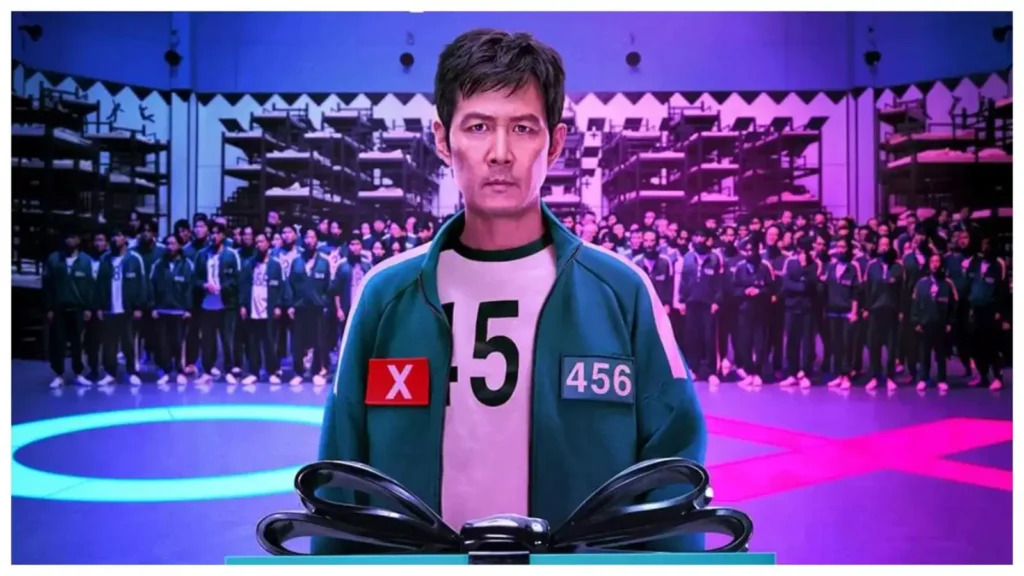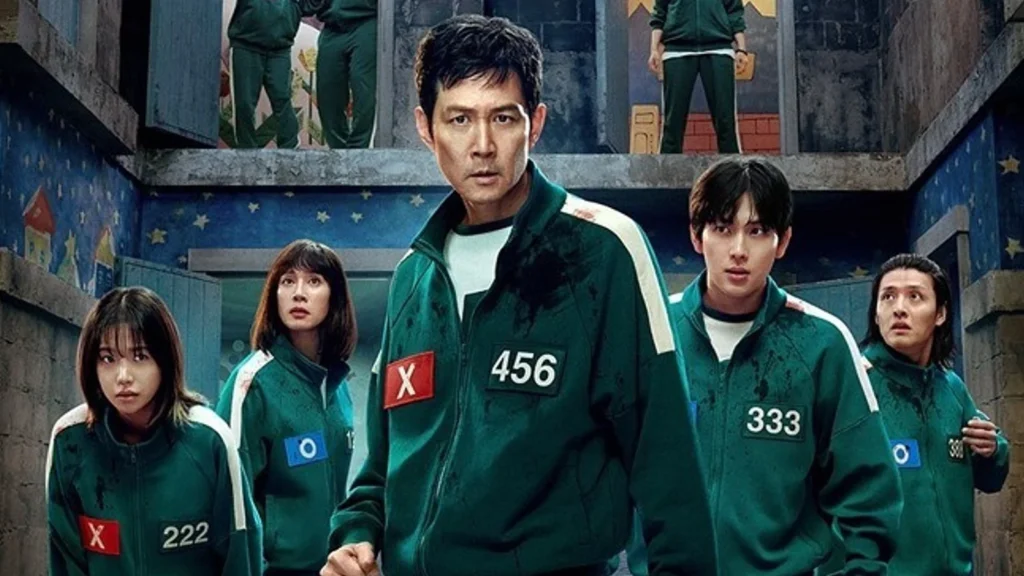When Squid Game initially debuted, it stunned the world with its daring storytelling, incisive social commentary, and indelible tension. Season 1 was a cultural phenomenon. Season 2, as more polarizing, still had some significant developments. But now, with the arrival of Squid Game Season 3, the show concludes not in a bang but with a disappointing whimper. What would have been an effective and compelling conclusion becomes an unidentifiable, bloated version of its previous self.
The Core Mission, Abandoned
Among the most confusing artistic decisions this season is letting go of Gi-hun’s goal. The audience at the end of Season 2 knew what to do: Gi-hun, traumatized and changed by what he experienced, promised not to play again but to destroy the game from the outside. His rage, sorrow, and moral transformation promised a character development centered on justice, opposition, and maybe redemption.
But Season 3 ruins all of this. Instead of looking into the company, recruiting allies, or revealing the elite system, Gi-hun does the very opposite he goes back into the games. Worse, he does so willingly, by the same brutal rules he had previously decried. This choice feels thoroughly unearned and self-disrupting, robbing the character of the emotional gravity and development he’d gone through before. The series wastes the potential of what could have been an interesting journey of sabotage and survival against the establishment and degenerates into another bout of violence with even less significance.
The notion of him redeeming players or resisting from within is never pursued with depth. He just gets reduced to another pawn and follows existing molds and not really changing anything. By the last episode, it’s painfully obvious that Gi-hun’s journey concludes not in glory or drama, but with his irrelevance.
The Vanishing Cop and Wasted Subplots
Yet another huge letdown is the reappearance and utter underutilization of the police officer character, Hwang Jun-ho. His narrative in Season 1 provided a fresh investigative element to the series. His alleged death was hinted at, leaving the audience with hopes for a high-stakes return and a more thorough investigation of the inner game.
Season 3 brings him back to do nearly nothing with him. He’s on the periphery of the plot, providing nothing in terms of new information, nothing in terms of meaningful contribution, and nothing in terms of payoff to the story that was so promising. His appearance is an afterthought an addition for the sake of nostalgia and not for storytelling significance.
Instead of using him to discover greater secrets or collaborate with Gi-hun in an action-packed takedown, the series leaves both players adrift in isolated, unsatisfying arcs. Two of the franchise’s most promising characters are reduced to drifting aimlessly through a succession of poorly conceived plot developments, unable to impact the result in any meaningful manner.
Bloated Worldbuilding, Hollow Stakes
Season 3 tries to open up the universe of Squid Game, introducing new game spaces, groups, and an international network of top players. None of it works, however, nor is it especially compelling. The new games are not as symbolic or resonant as the originals. They’re more brutal, more flashy, but ultimately forgettable. There’s no depth of emotion or metaphor to them only spectacle for the sake of spectacle.
This broader scope also cheapens the intimacy that made Season 1 so frightening. Rather than being centered on individual desperation, the narrative turns into a tangled web of international conspiracies, shadowy antagonists, and soap-operatic power struggles. The thematic richness the raw social commentary on poverty, capitalism, and humanity is diluted to background chatter.
Flat Characters and Lost Potential
Almost all characters, both old and new, are crippled by thin development. The motivations of Gi-hun are undeveloped. His moral center, once so unimpeachable, is nonexistent. The new players, who might have created new emotional stakes, are caricatures or remain undeveloped. The Front Man, once the enigmatic and menacing figure that he was, is badly written and more and more irrelevant.
Even the VIPs, whose over-the-top villainy was a central criticism in the earlier seasons, return with increased screen time but no increased depth. Their scenes remain the show’s low points, bringing the show down with cringe-worthy dialogue and campy acting that is juxtaposed with the show’s original tone.
Abandoned Themes and Watered-Down Commentary
Season 3 could have deepened its commentary on systemic inequality, greed, and survival.
By the time the season finale is here, the message of the show is too vague and muddled. What would have been a scorching denouement is a muddled murmur.
Technically Strong, Emotionally Weak
To its credit, Season 3’s production value is unmistakably stunning. The cinematography is streamlined, sets are bigger than ever, and direction is visually chic. Style, however, cannot rescue the show. Emotion, tension, and heft that once characterized Squid Game are absent.
The violence is excessive but somehow impactless. Deaths are just a matter of course, with little lead-up or aftermath. While the original games were psychologically damaging, the events of Season 3 are more like another episode in a reality TV show that went astray.
Unnecessary Voting, Repetitive Drag

One of the more frustrating additions this season is the constant voting after nearly every game. While it might’ve been intended to add drama or give the players some illusion of control, it ends up doing the opposite. The votes feel repetitive, drawn out, and ultimately pointless. What started as a potentially interesting twist quickly turns into a predictable routine that slows the episodes down. Instead of building tension, these moments often feel like filler something thrown in just to stretch the runtime and they add very little to the story or the characters involved.
Final Verdict
Squid Game Season 3 is a heartbreaking disappointment. What is a groundbreaking show at the start ends up a shadow of itself, more committed to international expansion and shock than character, coherence, or purpose. Gi-hun’s vow to put an end to the games is distroyed by writing. The resurfacing cop character is wasted. The games themselves, what was once emblem of vicious societal critique, are now empty arenas for atomized violence.
Instead of offering closure, growth, or a powerful message, the final season delivers confusion, contradiction, and disappointment. It’s a reminder that bigger isn’t always better and that without a clear vision, even the most promising stories can collapse under their own weight.

